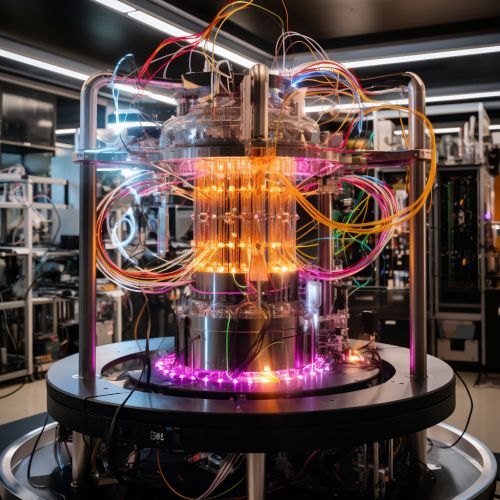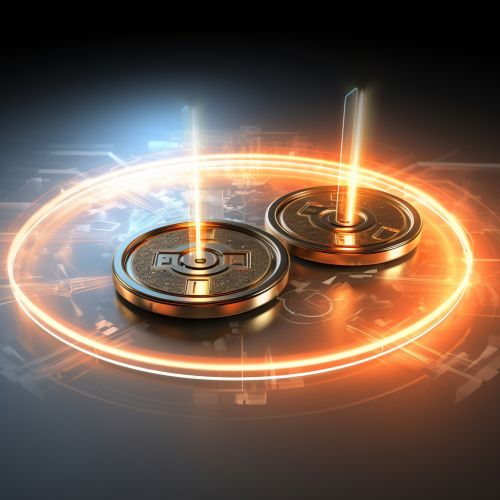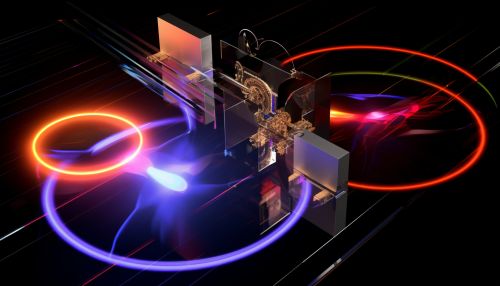The Role of Quantum Computing in Cryptanalysis
Introduction
Quantum computing is a rapidly evolving field that leverages the principles of quantum mechanics to process information. Unlike classical computers, which use bits as their most basic unit of data, quantum computers use quantum bits, or qubits, which can exist in multiple states at once thanks to a property known as superposition. This allows quantum computers to process a vast number of possibilities simultaneously, potentially solving certain types of problems much more quickly than classical computers. One area where quantum computing could have a significant impact is in cryptanalysis, the study of analyzing and breaking cryptographic systems.


Quantum Computing and Cryptography
Cryptography is a method of protecting information by transforming it into an unreadable format. Only those who possess a special key can decrypt the information, returning it to its original form. The security of many cryptographic systems relies on the difficulty of certain mathematical problems. For example, the widely used RSA encryption system is based on the fact that factoring large numbers is computationally difficult for classical computers. However, quantum computers could potentially solve these problems more efficiently, threatening the security of these cryptographic systems.
Quantum computing's potential impact on cryptography is largely due to two algorithms: Shor's algorithm and Grover's algorithm. Shor's algorithm, developed by Peter Shor in 1994, is a quantum algorithm for factoring integers that is exponentially faster than the best known classical algorithm. If a large-scale quantum computer could be built, it could use Shor's algorithm to break RSA encryption. Grover's algorithm, developed by Lov Grover in 1996, is a quantum algorithm that can search an unsorted database (or an equivalent mathematical problem) quadratically faster than any known classical algorithm. While Grover's algorithm doesn't break cryptographic systems, it could reduce the security of many cryptographic systems by a factor of two.
Potential Impact on Cryptanalysis
If large-scale, fault-tolerant quantum computers become a reality, they could have a profound impact on cryptanalysis. The ability to factor large numbers efficiently would make many currently secure encryption systems vulnerable. This includes not only RSA, but also other systems that rely on the difficulty of factoring large numbers, such as the Diffie-Hellman key exchange and elliptic curve cryptography.
In addition to breaking existing cryptographic systems, quantum computers could also aid in the development of new cryptographic systems. For example, quantum key distribution (QKD) is a method of transmitting cryptographic keys that is theoretically secure against any type of computational attack, including those from quantum computers. QKD relies on the principles of quantum mechanics, including the fact that measuring a quantum system generally changes its state. This means that any attempt to eavesdrop on a QKD transmission would be detected.


Challenges and Future Directions
Despite the potential of quantum computing in cryptanalysis, there are significant challenges to overcome. Building a large-scale, fault-tolerant quantum computer is a formidable task. Quantum systems are extremely sensitive to environmental noise, and error correction in quantum computers is a complex problem. As of now, the largest number factored by a quantum computer using Shor's algorithm is 21, a far cry from the large numbers used in cryptographic systems.
However, the potential threat of quantum computing to cryptography has spurred research into post-quantum cryptography, which aims to develop cryptographic systems that are secure against both classical and quantum attacks. Several families of post-quantum cryptographic algorithms are currently being investigated, including lattice-based cryptography, code-based cryptography, and multivariate polynomial cryptography.
